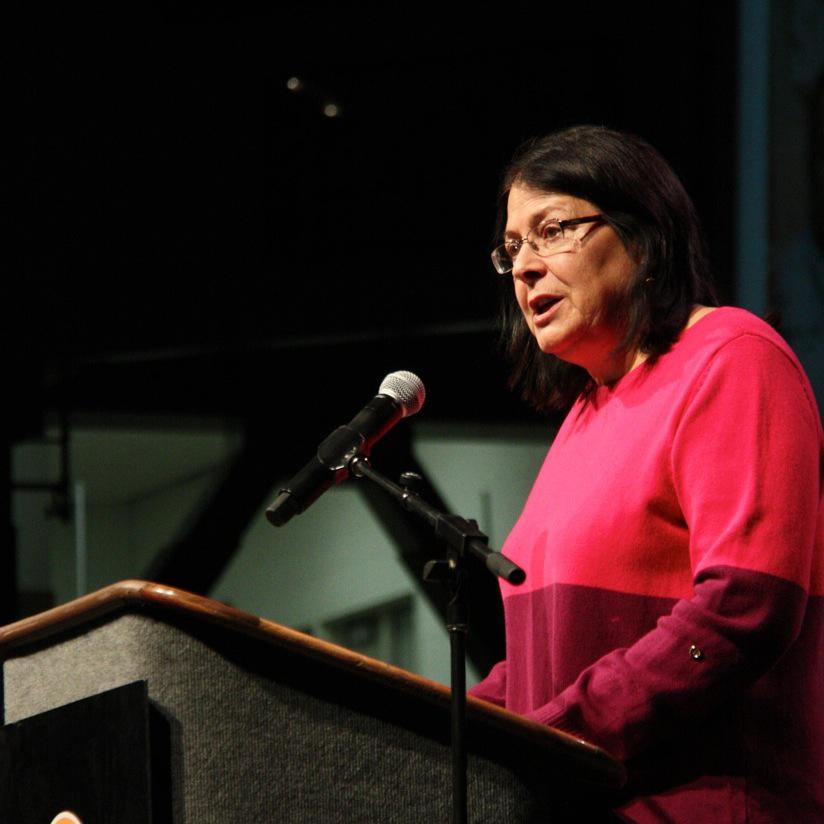
The Alaska Federation of Natives is keeping a close eye on the new administration of President Donald Trump. The Native organization’s board is developing ways to negotiate with the current government in Washington, participate in decision making, and advance Alaska Native priorities.
Following President Trump’s first 100 days, AFN President Julie Kitka is hopeful Alaska can create a seat at the federal table. For example, Kita sees an opportunity in a new task force, chaired by Secretary of Agriculture Sonny Perdue, focusing on rural America.
“And clearly Alaska and most of the bush falls under rural America,” Kitka said. “So we’re going to see whether or not there’s opportunity to get some of our issues on the agenda with that task force.”
Kitka’s also advocating for current bills that would allot land to Alaska Native veterans.
While some people are nervous about the change in command, Kitka is taking it in stride. She’s worked for AFN for more than 20 years, first as a lobbyist, and then as President. She has seen U.S. presidents and majority parties turn over multiple times. It’s politics. And each change requires a different strategy for promoting Alaska Native priorities.
“If you think about what you read about this administration, they don’t like the terminology climate change,” Kitka said. “I think all our communications going forward should be on extreme weather.”
Kitka was referring to how President Trump revoked an executive order passed by President Obama to create a Northern Bering Sea Resilience area with a tribal advisory committee. The Bering Sea Elders Group had worked for the order, and Alaska’s Congressional delegation supported Trump’s action to revoke it. For Kitka, the reversal is nothing new.
“We’re talking about how can people regroup, sit down and talk with our Congressional delegation, the governor, and see where we go from there,” Kitka said.
Kitka said it’s time to address the issue from another angle. Instead of approaching it from a natural resources and the environmental standpoint, they could try national security.
“Whether or not you’re talking about shipping traffic, the opening of the ice, there’s a lot of national security interests,” Kitka said.
Kitka said the AFN board will be meeting with Cabinet members traveling to Alaska to engage and educate them about Alaska Natives issues. First up is Secretary of State Rex Tillerson, who’s traveling to Fairbanks this week to meet with representatives from other Arctic nations.
AFN members will also be traveling to D.C. to meet with members of the administration and with Alaska’s Congressional delegation. They’ll lay out federal priorities and budget requests.
Closer to home, Kitka said AFN is urging the Alaska Legislature to pass a responsible fiscal plan.
“Because it’s our assessment that, if they don’t take action this year, it’ll be very hard to take action next year, because it’s an election year and so many people are up for election,” Kitka said.
Kitka was in Bethel last week for the AFN board’s quarterly spring meeting. Each board member received a Naloxone kit and a five-minute training session on how to use it. The kit holds a nasal spray that can reverse opioid overdoses. The members have taken the kits home to work with their communities on how to use this new tool as the state looks for ways to counter an opioid abuse epidemic.
Kitka also gave a preview of next fall’s annual AFN Convention. On the agenda are solutions to mitigate sexual assault, advance emergency preparedness and merge declining federal and state resources to improve the Office of Children Services and the lives of children across Alaska.
Anna Rose MacArthur is a reporter at KYUK in Bethel.




